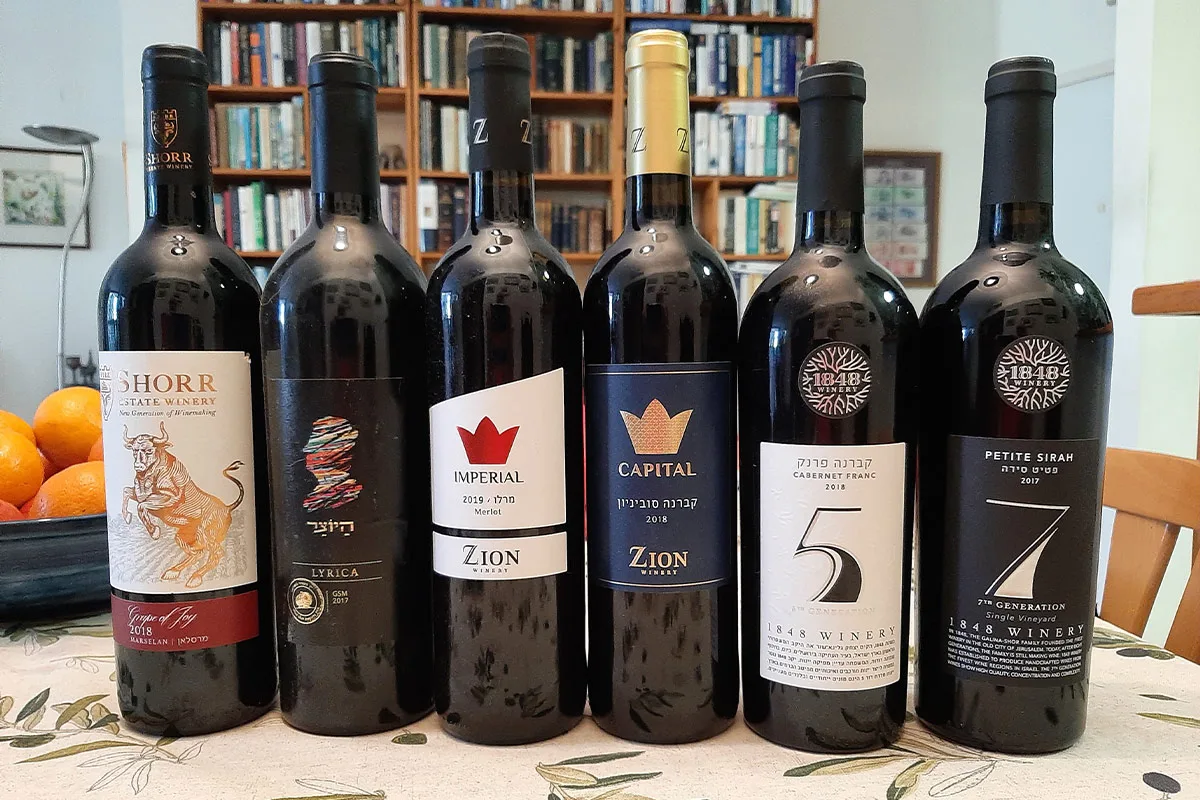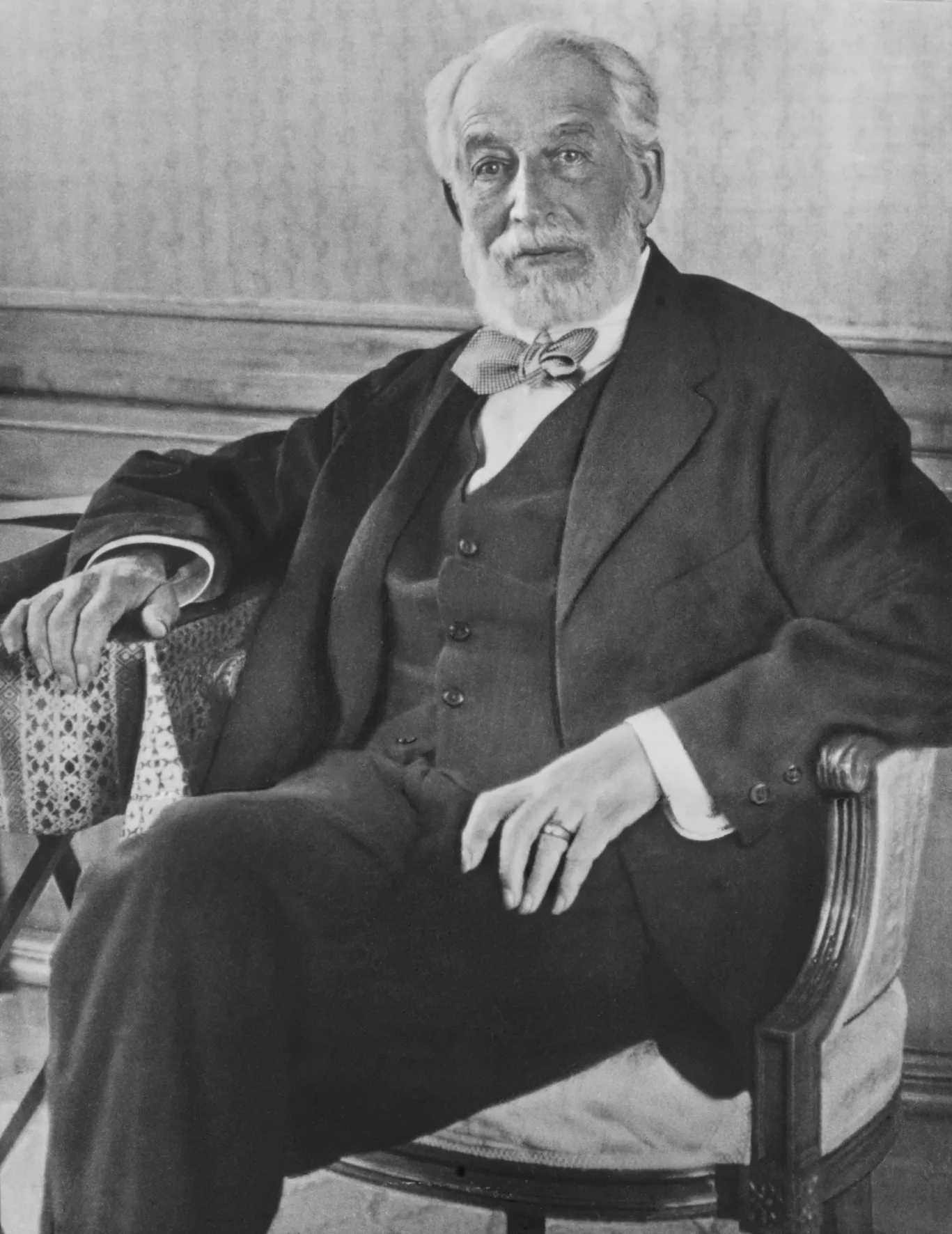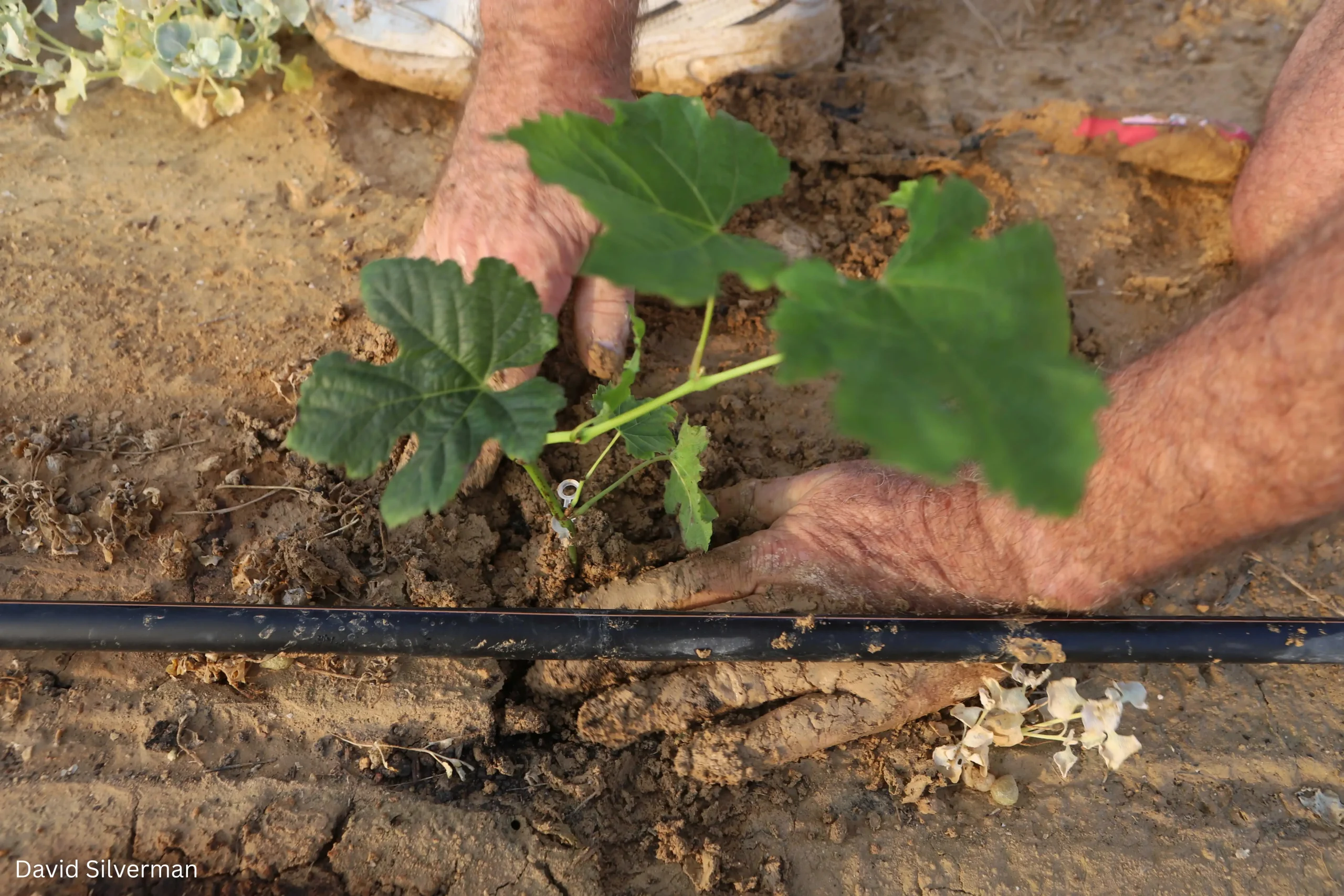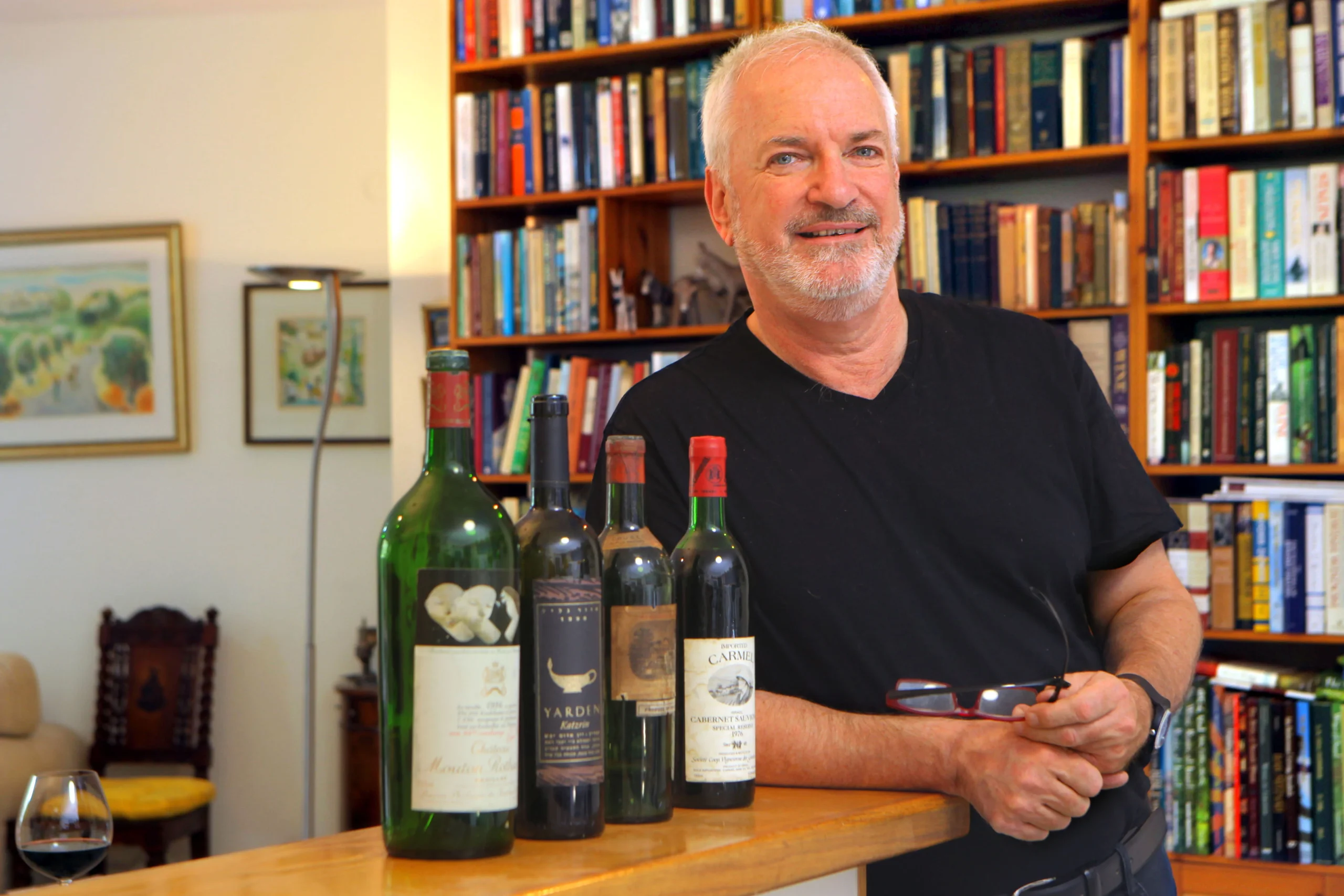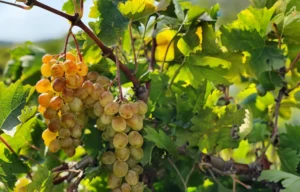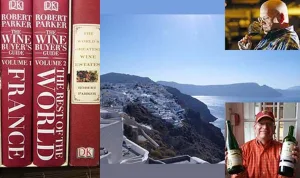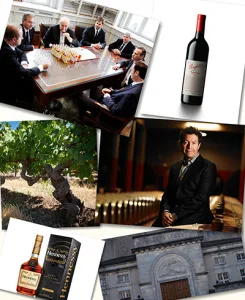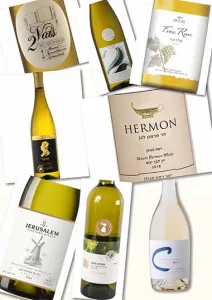The Shor family has been making wine since 1848. Generation after generation, handed down from grandfather to father, father to son, son to grandson and so on. It is Israel’s oldest wine dynasty. They began in what was the Ottoman Empire, continued under the British Mandate and are still going strong in the 73rd year of the State of Israel. Today the family focus seems to be on four wineries in the market place. These are: 1848 Winery, Hayotzer Winery, Shorr Estate and Zion Winery. These wineries with deep roots in the history of Israeli wines, are all run independently by different branches of the family.
This Passover, I recommend celebrating this family’s unique contribution to Israeli wine, by selecting the Four Cups from these four wineries, with one wine from each. Out of respect for the preferred tradition of using red wine, I have chosen the following:
FIRST CUP: Zion Winery, Imperial Merlot 2019
Light, fruity, and refreshing from Zion Winery. Serve it chilled.
SECOND CUP: Shorr Estate, Grape of Joy Marselan 2018
Good berry fruit, backed by a full fruity flavor. This may also be served chilled.
THIRD CUP: Hayotzer Winery, Lyrica GSM 2017
A rustic, meaty, chewy wine made from a blend of Grenache, Syrah and Mourvedre.
FOURTH CUP: 1848 Winery, 7th Generation Petite Sirah, Single Vineyard, 2017
A monster. Full bodied, concentrated with layers of complexity and long flavorful finish.
As a backup option, I would have the Hayotzer Moscato 2019 and Zion Winery Red Moscato 2020 standing by. These are sweet, low alcohol, and slightly sparkling. They are popular family wines.
It was 173 years ago, when Yitzhak Galin (Galina) wanted to establish a winery. He was only able to procure the license required by the Ottoman Authorities, from his brother-in-law, Baruch Shor. So he took over the license, changed his name to Shor and opened the earliest existing winery in Israel in 1848, in the Old City of Jerusalem. This was long before anyone had heard of Carmel, Baron Edmond de Rothschild, Rishon Le Zion and Zichron Ya’acov Cellars! The winery was situated in the Muslim Quarter alongside the ‘Kotel Hakatan’ (the little Western Wall). Barrels were strategically placed along the wall, so someone would not inadvertently touch the Temple Mount. The first evidence of the family’s new profession appeared in the Montefiore Census, commissioned by Sir Moses Montefiore in 1849.
The most well-known member of the family was Rosa Shor who opened the first combined wine shop & wine bar in the cotton market in the Muslim Quarter. The family winery remained operational in the Old City until 1925. Then, the British Mandate demanded that industry be moved out of the over-crowded Old City. The winery, by then known as Shor Brothers, moved to a new home at Beit Israel in Western Jerusalem. The same Rosa became the first female manager of a winery, taking over when her husband died before his time.
By 1944, the family had grown, and the two brothers managing the winery, decided to split the business into two, whilst continuing on the same site. As part of an agreement, Avraham Meir Shor continued producing wine at AM Shor Winery, which was renamed Zion Winery, and Moshe Shalom Shor undertook to make only spirits like arak, vodka and brandy as well as grape juice. His company was named Shimshon Winery.
Avraham Meir Shor’s descendants continued making wine through the generations at Zion Winery. This is the family branch, which has made wine uninterrupted since 1848. Uniquely, from the beginning until today, a member of the family has always been the winemaker.
Moshe Shalom Shor’s children returned to wine. His daughter Tzippora and her husband Yona Mendelsohn took on Shimshon Winery, which after the Six Day War moved to Atarot. In 2006 the winery was sold and renamed Jerusalem Wineries. Moshe Shalom’s sons started new wineries. Itzhak founded Tel Arza Winery and Yehiel founded Hacormim Winery.
In 1982, the Zion, Arza and Hacormim wineries, all owned by different branches of the Shor family, moved to Mishor Adumim, near Maale Adumim in the Judean Desert, not far from Jerusalem. There they remain, situated together on the very same street! However in those days, they were mainly known only for inexpensive wines and liquid religion, in other words Kiddush wine and grape juice.
As far as size is concerned, both Zion Winery and Arza Winery are today comfortably amongst the top ten largest wineries in Israel. The Shor family wineries combined, make something like 4.5 million bottles of wine a year and arguably the same amount again in grape juice (made from wine grapes.)
However, it is their newly launched and relaunched wineries which illustrate that the Shor family, on entering their third century as wine producers, have adapted to the wine revolution around them. They are now making quality table wines.
1848 Winery was launched by Yossi Shor, 8th generation of the Shor family. The winery produces wines that begin at 60 shekels. The labels celebrate the generations of the family. The wines range from the 2nd Generation label up to the 7th Generation. The flagship wine is the Special Reserve and there is a rare icon wine, Grand Reserve. The owner and CEO of 1848 Winery is Yossi Shor and the winemaker is talented young Frenchman Ilan Assouline, who studied in Bordeaux. The slogan of the winery is “Eight generations of winemaking.”
Hayotzer Winery was launched by the owners of Arza Winery. They produce wines that begin at 30 shekels. The word ‘Hayotzer’ means author. Most of the brand names have artistic or musical connotations. They range from Genesis (entry level), Virtuoso, Legato, up to Lyrica. The flagship wine is Auteur. The owner is Motti Shor, the CEO Erel Barkai and the winemaker is the respected Philippe Lichtenstein, who for many years was the winemaker of Carmel’s Zichron Ya’acov Cellars. Their slogan is “Wine that inspires you.”
Shorr Estate Winery was launched by Hacormim Winery. They so far produce two labels: Hello (entry level) and Grape of Joy, both at entry level prices. Note the different spelling of the family name, which was copied from an old family logo. The labels show an illustration of a bull. The word ‘Shor’ in Hebrew means bull. The owner/ CEO is Eli Shor and the winemaker is the experienced Zvi Skaist, who worked for Carmel (Rishon le Zion & Zichron Yaacov), Jerusalem and Barkan. The slogan of the winery is “A new generation of winemaking.”
Zion Winery underwent a total makeover under the dynamic leadership of CEO Moshe Shor, z”l. The winery was modernized & renovated and the labels were given a new look. The winemaker is Zvika Shor, who took over as winemaker from his father. The winery labels range from entry level Palace, then Imperial, Estate, Capital, up to the flagship Crown. The slogan is “Family winery since 1848, in Jerusalem.”
Wishing you a Kosher and Happy Passover!
Adam Montefiore has advanced Israeli wine for 35 years. He is referred to as the English voice of Israeli wine. He is the wine writer of the Jerusalem Post. www.adammontefiore.com


